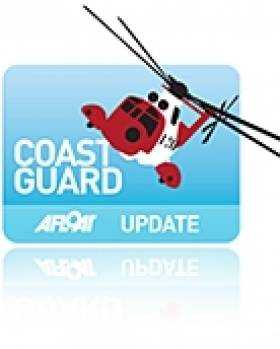Displaying items by tag: Future Helicopter Study Group
Irish Coast Guard Chopper Deal Could Be Model for UK
The director of the Irish Coast Guard has outlined the thinking behind its recent €500m deal for helicopter search and rescue services.
Chris Reynolds told Rotorhub that a simplified model based on key critera was adopted when choosing a bigger for the contract, which was awarded to CHC Ireland last year.
"With our contract, we essentially wanted to continue with what we already had, but with new technology," he said.
Rotorhub reports that the Irish Coast Guard formed a Future Helicopter Study Group to discuss the service's needs before the tender process which led to the 10-year deal for five Sikorsky S-92s.
The process stands in contrast to SAR-H, the UK's programme to overhaul its helicopter fleet which collapsed last year.
"If the UK needs to be looking at a new interim contract, they could look at how we did it," added Reynolds.
Rotorhub has more on the story HERE.
























































